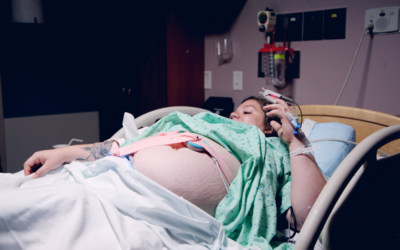Infections through Negligence
Stern Law has decades of experience representing clients who have suffered terribly as a result of the negligent management of infections such as Meningococcal Infection and infections resulting from improper care during surgery. We will give you honest advice about your case. We brief leading medical experts and we know how to find the appropriate to expert for your particular medical negligence claim.

Meningococcal Infection and Negligence
Meningococcal infections are prevalent and not infrequently result in tragic loss. Most meningococcal infections can be appropriately treated subject to early recognition of the red flags diagnosis and prompt treatment.
It is not uncommon for a person infected with a meningococcal virus to present at the Emergency Department with symptoms which are non-specific, but which might be well-recognised with an appropriate index of suspicion.
Unfortunately, there can, due to pressure of work, inexperience or other factors, be a failure to scrutinise the case with the appropriate index of suspicion leading to diagnostic delay and unfortunate results. Sometimes, such failure can be the result of negligence.
We have an accredited specialist who can advise you on the medico-legal aspects of meningococcal disease and negligence.
Infection Cases
Infections are caused when a bacteria or virus or some other passage attacks the body and takes a hold. If you read any standard result in a Google search, you are likely to find that the cause of infection is said to be whichever type of organism has invaded the body. A classic example is a viral infection.
A common cause of infection is a hospital-acquired infection. These rarely give rise to a viable medical negligence claim, although, of course, they can.
Infections caused by trauma more frequently give rise to an actionable claim.
Some examples of traumatic infection are:
- Failure to provide appropriate prophylaxis after surgery;
- Diathermy burns can trigger infection.
-
Although some cases can rest on the fact of there being an infection which should not have taken place absent negligence, most viable medical negligence cases related to infection focus on failure to diagnose and treat in a timely way.
In all such cases, it is a significant advantage for the person who seeks a remedy in damages to engage a solicitor who knows what they are doing in a case arising out of infection.
A solicitor must have access to leading experts in infection medicine to be able to prepare a focused and well-directed brief for expert opinion and know-how to legitimately obtain an opinion which is more likely to be helpful to the injured person in terms of seeking compensation.
Take, for example, diathermy burn-related infection. A diathermy burn can trigger an infection which can lead to a sequence of events with devastating consequences for the patient.
A common defence to a diathermy burn/infection related case is that ‘it was just one of those things’ and there was no negligence by the medical practitioner. This may well be the case. Certainly, this manner of defence is frequently enlisted.
It is critical that if you need to seek legal advice in a situation of this nature, you seek it from an Accredited Specialist in Personal Injury Law who has expertise in medical negligence in diathermy burns cases.
Terry Stern is, from a medico-legal point of view, well versed in diathermy burns, how they are caused and why they may be associated with negligence on the part of the hospital and its employees and/or the surgeon. Having investigated diathermy burns, Terry is familiar with the nature of the machinery, how it works and what sort of circumstances can result in burns. Terry has investigated the various experts who are available and should be able to give you a significant advantage in the conduct of a case of this nature.
Disclaimer: The content of this article is intended only to provide a summary and general overview of matters of interest. It does not constitute medical or legal advice and should not be relied on as such.




